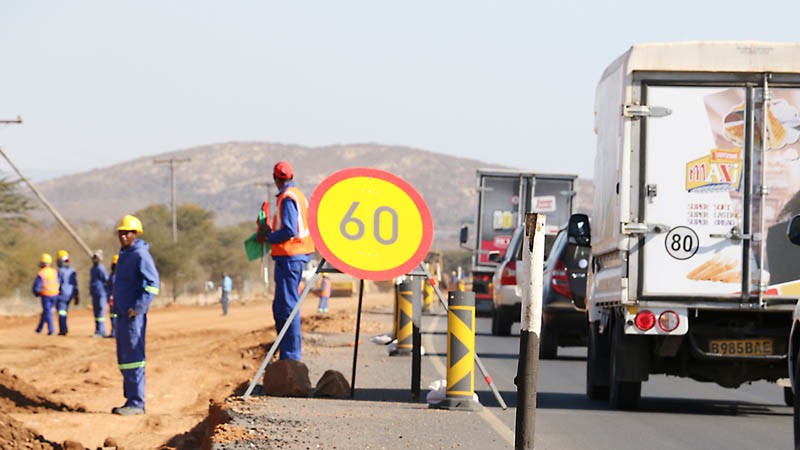Gov�t moots one-stop-shop for transport projects
Isaac Pinielo | Tuesday August 29, 2017 18:00


Director of Transport Planning and Policy, Orapeleng Mosigi said the policy is expected to be launched some time next year.
It envisions the establishment of a transport system that is not only safe, secure, reliable, and efficient but also integrated, affordable, and cost-effective.
Speaking at a University of Botswana and Trans-Kalahari Corridor (TKC) stakeholder engagement workshop held in Gaborone last week, Mosigi said Botswana did not have a clear-cut transportation policy, noting that the industry depended on national development plans (NDP). The purpose of the workshop was to explore how business opportunities along the TKC can be exploited. As such, Mosigi said transportation in the country is still having challenges of goods not reaching their destination on time.
“We are working to address the challenges, especially with the development of a policy that seeks to integrate all modes of transport so that transportation of goods is seamless,” Mosigi said.
He stated despite being a landlocked country, Botswana has to be connected to the sea and become ‘land linked’.
Being a landlocked country, he said, Botswana is only linked to a few countries in the Southern African Development Community region by air, rail and roads.
Mosigi said the international North–South Transport Corridor, which is a 7,200-kilometre-long multi-mode network of ship, rail, and road route, complements the TKC. “This corridor is made up of seven countries while TKC has three.”
He said the Kazungula Bridge across the Zambezi River, which is funded by the governments of Zambia and Botswana, is progressing well despite challenges, adding that it will be completed in 2019.
Once complete, Kazungula is expected to reduce crossing time by 10-fold when compared to the current setup of using a pantoon.
According to the TKC Secretariat, the TKC is strategically linked to other corridors in the sub-region, such as Trans Kunene Corridor, Walvis Bay-Ndola-Lubumbashi (Trans Caprivi) Corridor and the Trans Oranje Corridor through the Port of Walvis Bay and Maputo Corridor, resulting in the Coast-to-Coast Corridor.
The corridor further provides an alternative trade route for landlocked countries such as Botswana to the port as opposed to the traditional Durban route.
It is anticipated that the TKC, together with other corridors in the region, will facilitate integration of movement bringing efficiencies, especially in cross-border movements.
